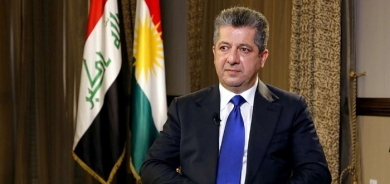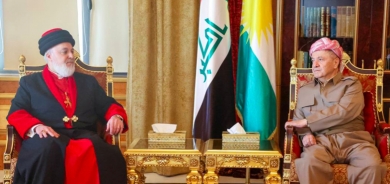Cooling Hot Tensions Between Baghdad and Kurdistan

Although the Kurds certainly have a legitimate role to play in Kirkuk today, I also remember what they used to say about the Bourbons in France: “They learned nothing and they forgot nothing.” Given the much larger Arab population in Iraq, time is probably on the side of Baghdad. The U.S. guarantees to the Kurds do not cover having a war over Kirkuk and to depend on Turkey’s support is to trust the wolf.
Surely wise statesmanship suggests a less militant Kurdish approach lest in reaching for too much, the Kurds lose everything they have so painstakingly gained since the fall of Saddam Hussein in 2003. Even without complete control of Kirkuk, the KRG enjoys much. In addition, nobody denies that the Kurds are one of the legitimate stakeholders in Kirkuk. Also do not forget that the Kurds are also part of the Baghdad government and that Jalal Talabani is president of Iraq.
Finally the Peshmerga have many contacts with the Baghdad military. Indeed, the symbiotic relationship between the Peshmerga and Baghdad militaries constitutes an important factor that might prevent the two from falling into actual conflict. As U.S. Lt. Col. Dennis P. Chapman writes: “Peshmerga troops have been converted into Iraqi Civil Defense Corps (ICDC) units, Iraqi National Guard and Iraqi Army units, Environmental and Forest police, Department of Border Enforcement units, and Police. . . . Probably the largest Peshmerga transformation initiative has been the transfer of large numbers of Kurdish troops from Peshmerga formations into the Iraqi Army.” Baghdad even “has accepted in principle the responsibility for funding the Peshmerga, as memorialized in the Iraqi budget framework laws for 2007 and 2008.” However, the two sides have not yet agreed on any funding formula. Not to be deterred, the KRG has also asked Baghdad to pay pensions for some 90,000 Peshmerga retirees.
Chapman also writes that although “there is a fair amount of suspicion among non-Kurds of Kurdish intentions . . . it appears that Kurdish units in the Iraqi army have demonstrated greater loyalty to Iraq by their actions than many of their Arab counterparts.” Indeed, after his detailed study of the KRG security forces including its Peshmerga , Chapman concluded that “an open breach between the Kurdistan Region and the federal authorities . . . need never occur, given even a modicum of flexibility and restraint on both sides.” Indeed, “the central Government and the [Kurdish] Region have shown a remarkable ability to defuse (or at least sidestep) potentially explosive issues and to cooperate on many important matters.”
Therefore, my advice to the Kurds is to cool the current hot tensions between them and Baghdad by playing on the Kurdish strengths I have discussed briefly in this short article. The United States will support such a reasonable KRG, but not one that tries to seize Kirkuk.

 Michael Gunter
Michael Gunter






